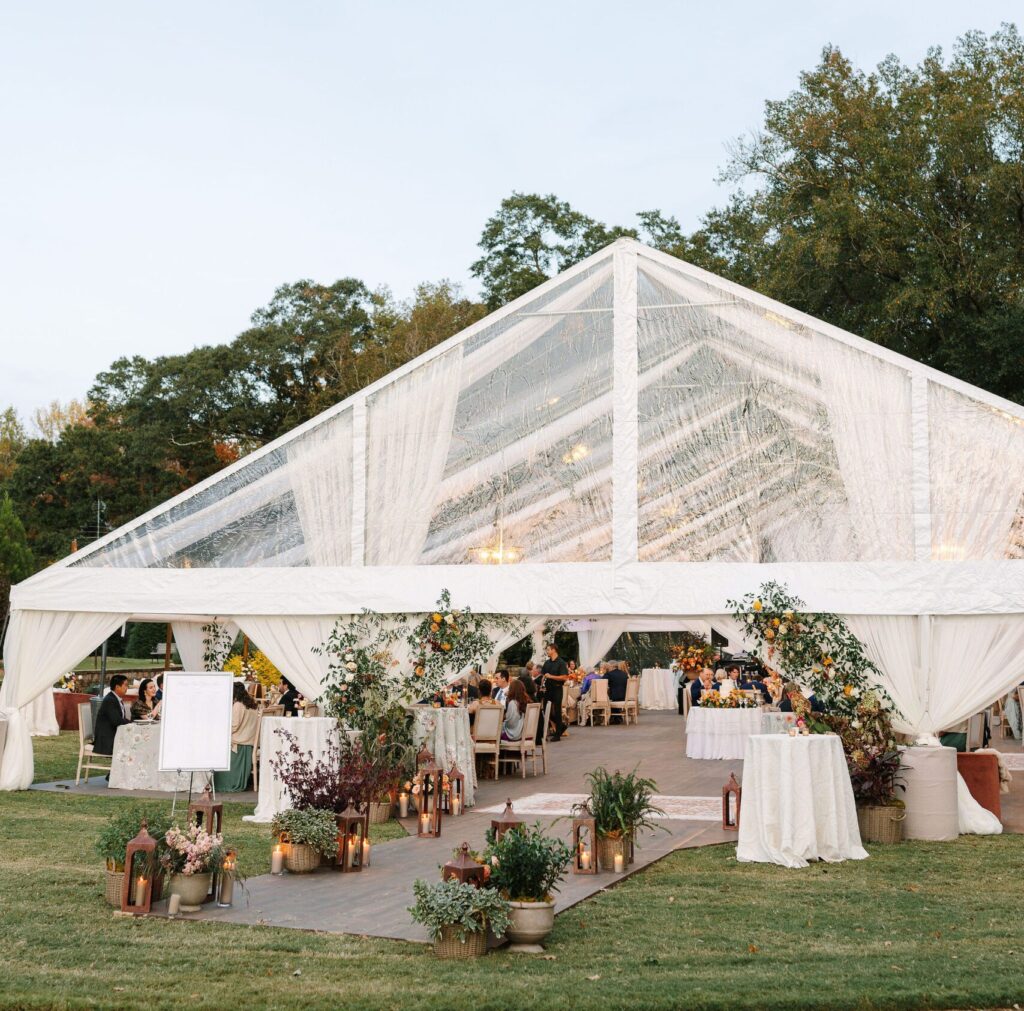How to Host a Private Wedding in the South
When most people hear “backyard wedding,” they imagine a simpler, more intimate celebration. In the South, the reality is quite different. A backyard wedding in this region typically means hosting your wedding at a family’s private estate or sprawling property. It’s a whole different ball game, with many logistics that couples often take for granted at a traditional venue. Successfully managing a backyard wedding requires careful planning and attention to detail.
Backyard weddings in the Southeast allow for complete customization and flexibility with guest count, making them perfect for couples who want a personal and memorable celebration. From the expansive lawn of a Southern home to the charm of a private estate, hosting your wedding outdoors offers a unique opportunity to create a fully tailored experience. However, these celebrations come with specific considerations and challenges. Below are top tips to ensure your backyard wedding runs smoothly and beautifully.
1. Plan for Any Weather
Even in the most beautiful Southeast weather, conditions can be unpredictable, making contingency planning essential for a backyard wedding. At a minimum, reserve a tent in advance to provide shade, shelter, and a defined space for your ceremony or reception. Additionally, identify a nearby backup venue or indoor location in case of severe weather, such as heavy rain or high winds. When designing your outdoor setup, think carefully about guest comfort: include fans for warm summer days, portable air conditioning units for extreme heat, or heaters for cooler evenings. Planning for weather ensures that your guests remain comfortable, your vendors can work efficiently, and your backyard wedding flows smoothly, rain or shine.



Photos by Kendra Martin Photography
2. Survey the Lawn for Flooring and Tent Staking
When planning the location for your backyard wedding weekend, survey the lawn carefully. Uneven ground may require flooring, but if you choose to go without, make sure the area has proper drainage, as a rainy week leading up to the event could create mud. If you plan to use a tent, check the ground for staking, taking into account underground irrigation, electrical lines, and soil type, all of which can affect how the tent can be safely secured.
3. Ensure Legal Compliance
Hosting a backyard wedding comes with legal and regulatory responsibilities. Start by checking local noise ordinances to ensure your celebration doesn’t conflict with city or county limits. Consult the fire marshal if required, particularly when using tents, candles, or outdoor heating. Securing private event insurance is highly recommended to protect both you and your property from unforeseen incidents. If alcohol will be served, obtain the necessary liquor license or permits. Additionally, confirm any permits required for large gatherings, amplified music, or temporary structures. Planning ahead for these legal considerations ensures your backyard wedding is safe, compliant, and stress-free for both you and your guests.
4. Prepare for Rentals
Because backyard weddings lack the infrastructure of a traditional venue, you’ll need a comprehensive rental plan. This includes tables, chairs, linens, staging, dance floors, and lounge furniture. Lighting is essential for both ambiance and safety, including string lights, chandeliers, or uplighting. Generators may be needed to power catering equipment, music, and other electrical needs. For food service, consider building out a full catering kitchen under a marquee tent with prep tables, sinks, refrigeration, and warmers. Restroom trailers are another key rental to ensure guests have clean, convenient facilities. Planning a detailed rental order ensures your backyard wedding runs smoothly and feels as polished as any traditional venue.
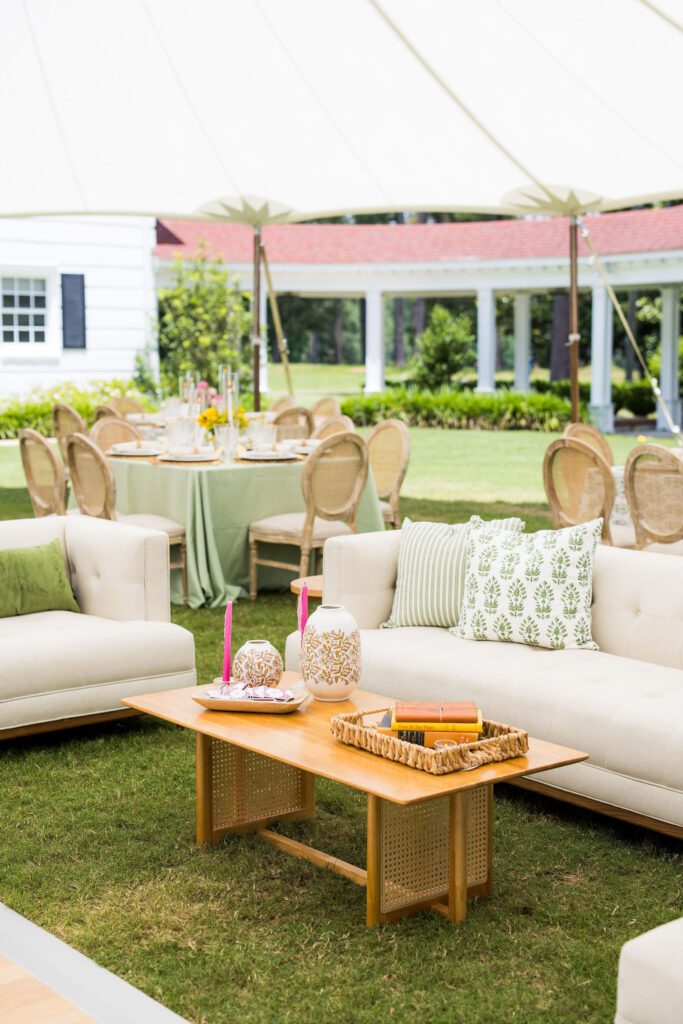
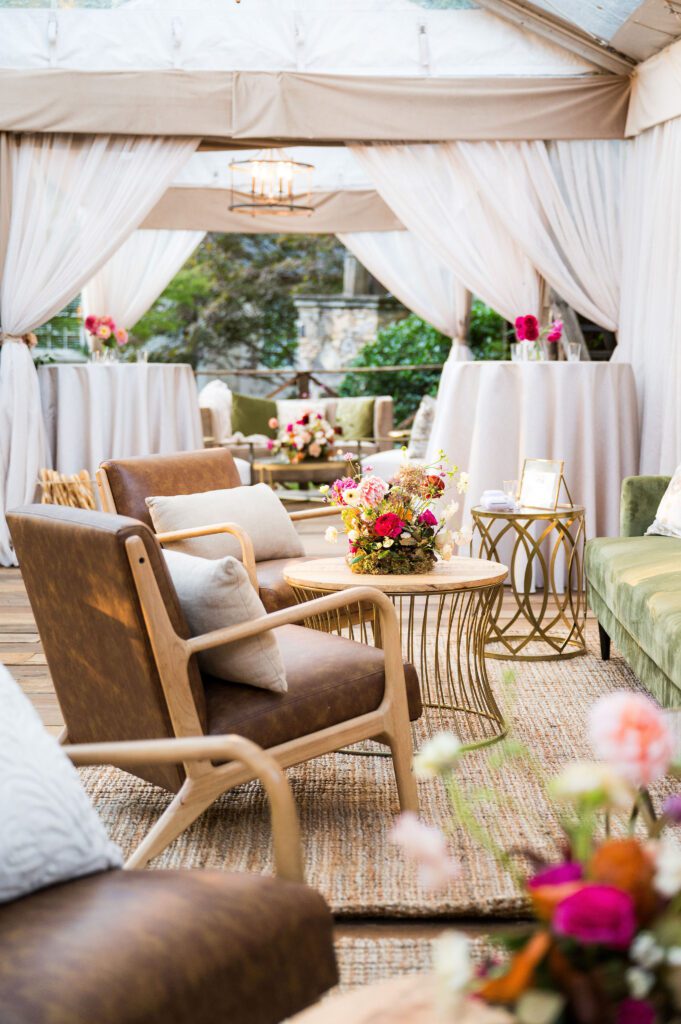
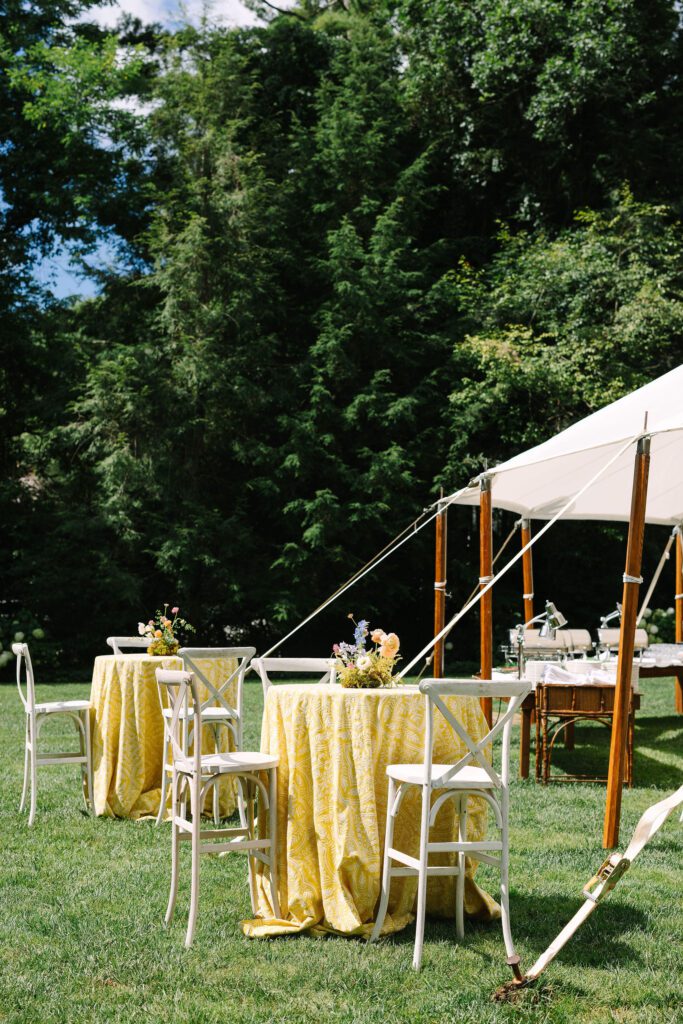
Photos by Kendra Martin Photography
5. Ensure Access to Water and Electricity
Tents, catering stations, and lighting all require reliable electricity and water. Begin by mapping out existing access points on the property, including outdoor outlets, water spigots, and utility lines. Depending on the size of your event, you may need temporary hookups or portable generators to power catering equipment, sound systems, lighting, and climate control units. Portable water connections may also be needed for bars, buffet stations, or dishwashing areas. Coordinating utilities with your vendors ahead of time ensures that catering runs efficiently, lighting functions properly, and your backyard wedding flows without interruptions.
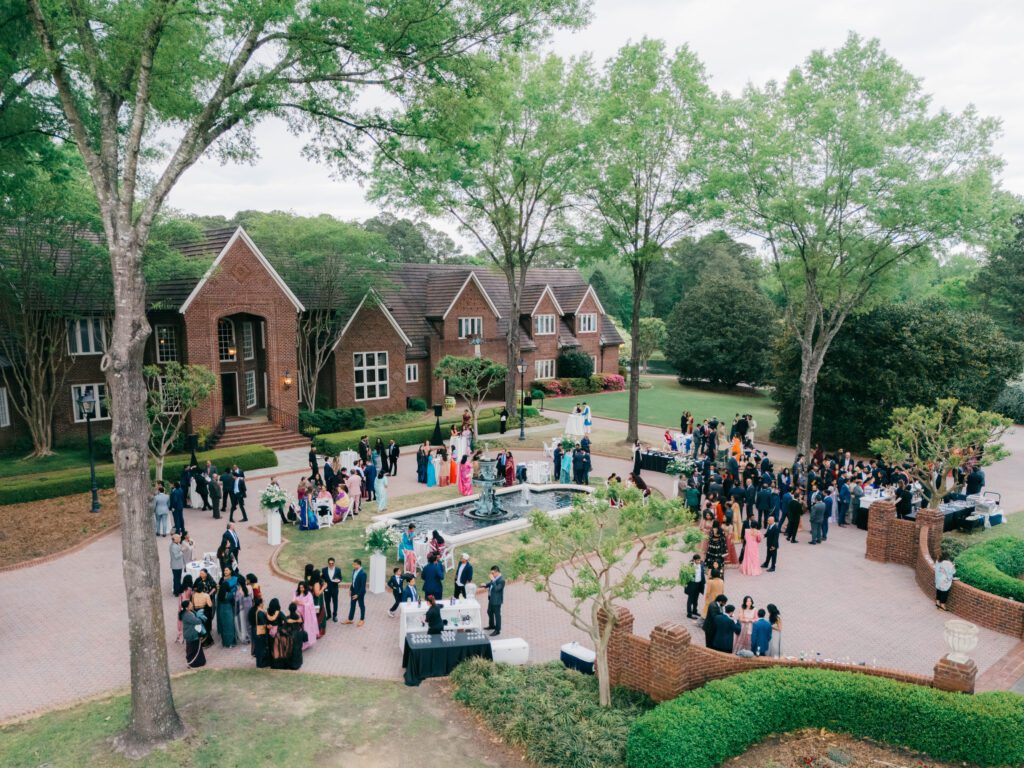
6. Hire a Wedding Planner Experienced in Outdoor Events
Perhaps the most important tip for a backyard wedding is hiring a full-service wedding planner who specializes in private homes and estates. Experienced planners bring expertise in logistics, vendor coordination, and design, which is crucial when transforming a private property into a fully functional wedding venue. They manage everything from tent placement and layout planning to coordinating catering, lighting, rentals, and staffing. Planners also handle timelines, budgets, and unexpected challenges, ensuring that everything runs smoothly from setup to teardown. Beyond logistics, they elevate the design, creating a cohesive look that complements the property while enhancing the guest experience. For couples hosting a backyard wedding, a skilled planner ensures the day is both beautiful and stress-free.

Hosting a backyard wedding in the Southeast offers unparalleled personalization, but it requires thoughtful planning. By preparing for weather contingencies, securing rentals and insurance, ensuring essential utilities, and working with an experienced planner, couples can create a wedding that is intimate, polished, and unforgettable. With the right preparation, your backyard or private estate can be transformed into the wedding venue of your dreams.
PREVIOUS POST
NEXT POST
© 2026 SIGNIFICANT EVENTS site credit privacy policy terms & conditions

